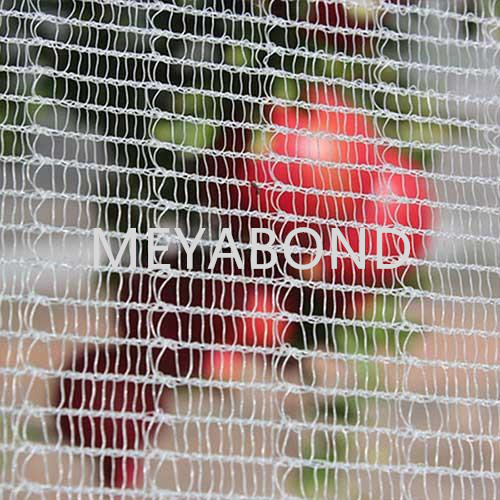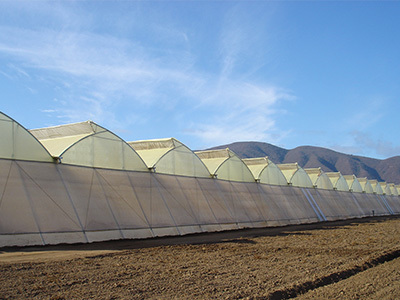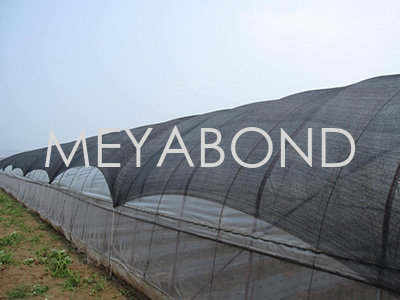Maximizing Crop Protection: The Benefits of Insect Proof Nets in Agriculture
Insect proof nets, also known as insect mesh or insect nets, are specialized agricultural fabrics designed to prevent pests from accessing crops. They play a crucial role in integrated pest management (IPM) strategies, helping to protect plants without the need for harmful chemical pesticides. By creating a physical barrier, these nets allow for the cultivation of healthy produce while maintaining ecological balance.
One of the primary benefits of insect proof nets is their ability to significantly reduce the likelihood of pest infestations. Agricultural pests, such as aphids, whiteflies, and caterpillars, can cause extensive damage to crops, leading to lower yields and potential economic loss. The use of insect proof nets effectively keeps these pests at bay, allowing plants to thrive in a controlled environment. By blocking the entry of pests while permitting air and light to penetrate, these nets create an ideal microclimate for crop growth.
In addition to pest protection, insect proof nets also provide a degree of physical support for plants. They can help prevent physical damage from wind and heavy rain, ensuring that crops remain healthy and robust. This dual function makes them particularly valuable in regions prone to harsh weather conditions.
Moreover, insect proof nets contribute to sustainable farming practices. By minimizing the need for chemical pesticides, they promote a healthier ecosystem, reducing the potential impact on beneficial insects such as pollinators. This is particularly important in the context of global food security, as biodiversity plays a crucial role in the stability of agricultural systems.
Insect proof nets are versatile and can be used in various agricultural settings, including greenhouses, nurseries, and open field production. They can also be tailored to specific crop requirements, with different mesh sizes available to target particular pests while still allowing essential insects and natural pollinators to thrive.
Farmers interested in utilizing insect proof nets should consider factors such as net density, mesh size, and the specific types of pests prevalent in their area. Proper installation and maintenance are also key to ensuring the effectiveness of these nets, as any gaps can provide entry points for pests.
In conclusion, insect proof nets are an indispensable tool in modern agriculture, offering effective pest control while promoting sustainable farming practices. By integrating these nets into their crop protection strategies, farmers can enjoy the benefits of healthier plants, increased yields, and a reduced need for chemical pesticides. Embracing insect proof nets is a step toward a more sustainable and resilient agricultural future.
One of the primary benefits of insect proof nets is their ability to significantly reduce the likelihood of pest infestations. Agricultural pests, such as aphids, whiteflies, and caterpillars, can cause extensive damage to crops, leading to lower yields and potential economic loss. The use of insect proof nets effectively keeps these pests at bay, allowing plants to thrive in a controlled environment. By blocking the entry of pests while permitting air and light to penetrate, these nets create an ideal microclimate for crop growth.
In addition to pest protection, insect proof nets also provide a degree of physical support for plants. They can help prevent physical damage from wind and heavy rain, ensuring that crops remain healthy and robust. This dual function makes them particularly valuable in regions prone to harsh weather conditions.
Moreover, insect proof nets contribute to sustainable farming practices. By minimizing the need for chemical pesticides, they promote a healthier ecosystem, reducing the potential impact on beneficial insects such as pollinators. This is particularly important in the context of global food security, as biodiversity plays a crucial role in the stability of agricultural systems.
Insect proof nets are versatile and can be used in various agricultural settings, including greenhouses, nurseries, and open field production. They can also be tailored to specific crop requirements, with different mesh sizes available to target particular pests while still allowing essential insects and natural pollinators to thrive.
Farmers interested in utilizing insect proof nets should consider factors such as net density, mesh size, and the specific types of pests prevalent in their area. Proper installation and maintenance are also key to ensuring the effectiveness of these nets, as any gaps can provide entry points for pests.
In conclusion, insect proof nets are an indispensable tool in modern agriculture, offering effective pest control while promoting sustainable farming practices. By integrating these nets into their crop protection strategies, farmers can enjoy the benefits of healthier plants, increased yields, and a reduced need for chemical pesticides. Embracing insect proof nets is a step toward a more sustainable and resilient agricultural future.
Key words:
Related News
09-12
Keywords:
CONTACT US
Email: sales8@meyabond.com
Tel: +8618911966213
No.3 Yard, ZhongHe Road, 100071,FengTai District, Beijing, China
Email: sales6@meyabond.com
Tel: +8618911963856
No.3 Yard, ZhongHe Road, 100071,FengTai District, Beijing, China
















